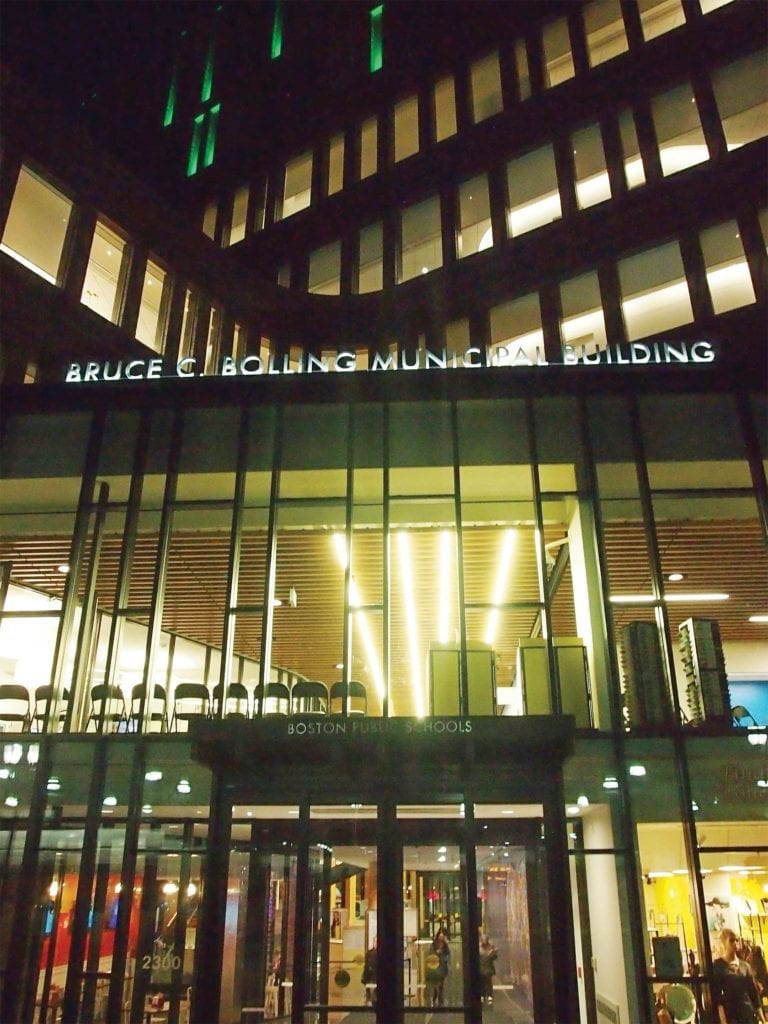
After a two-decade long partnership, Boston Public Schools and the Education Records Bureau (ERB), which developed the standardized testing for admission to Boston’s exam high schools, have parted ways.
The split follows a controversy between the two parties, wherein ERB President Thomas Rochon claimed in an email sent to private schools who use the ISEE that the firm for eight years has warned the district its use of the test may be unfairly disadvantaging students from “underrepresented groups.” Rochon said the firm requested a “validation study” on how ISEE test scores identify students who will be successful in Boston’s exam schools. The organization claims that the research recommendation was never followed. BPS officials counter that they have no record of ISEE requesting such a study prior to 2019.
Responding to a 2019 request for a validation study, BPS Superintendent Brenda Cassellius says she declined participation “to avoid giving undue advantage to any one particular vendor who might respond to an RFP [request for proposals] in the future and to protect the integrity of our public procurement process.” The district has drafted a request for proposals for a test provider that contains requirements ERB reportedly cannot likely meet.
The ISEE, or Independent School Entrance Exam, determines admissions to Boston’s three main exam schools: Boston Latin Academy, Boston Latin School and the John D. O’Bryant School of Math and Science. The ISEE test includes sections on mathematics achievement, reading comprehension and two sections on reasoning. Rochon last week told a WBUR reporter the math and reading comprehension sections are not closely aligned with BPS curriculum. His firm suggested the district give more weight to the reasoning sections, rather than lumping the four sections together.
A 2018 Rappaport Institute Report found that the exam schools would admit more black and Latino students if the district used the state-administered MCAS exam as an entrance examination, rather than the ISEE.
Ruby Reyes, executive director of the Boston Education Justice Alliance, told the Banner that education activists have been saying for years that the district’s system for admissions to exam schools is “skewed,” “biased” and “unfair.” She said that the split was timely, “in the sense that Cassellius came in and said that she was thinking about not using the exam again, and it is really expensive. But at the same time, people have been saying this for years.”
Lisa Guisbond, executive director of Citizens for Public Schools, told the Banner, “It’s clear that the impact of using the test in this way has been discriminatory. And [it] has blocked access and opportunity for black and brown students who are the majority of students in Boston Public Schools.”
In his blog Boston Parent Schoolyard News, Alain Jehlen noted that there have been few studies of the efficacy of the ISEE’s ability to predict student performance. The sole study cited, a 2014 study of a Los Angeles preparatory school, found a weak correlation between ISEE scores and students’ grades.
Despite the split, BPS still plans on using entrance exams, as well as grades as admissions requirements. Guisbond, however, said that standardized testing is being overused. She said that districts should move away from an overreliance and misuse of this testing, especially when making “high stakes decisions” about individuals.
“We know that standardized tests are not good at measuring and predicting who’s going to be successful in the future,” she said. “That’s been clearly studied, determined, you know, it’s not arguable.”
Guisbond noted how many colleges and universities are going “test-optional” in an effort to diversify their student bodies.
“They know that the more they rely on a standardized test’s results to choose who to let into their schools, the less diverse their student body will be,” she said. Studies show, she added, that test-optional schools result in a more diverse, higher-achieving student body.
“So it’s really a positive thing to move away from over-relying on test scores to make decisions on who gets opportunity and who doesn’t,” she said.
City Councilor Annissa Essaibi-George supports testing for admission to the exam schools. This testing, however, should accurately reflect the curriculum in BPS classrooms.
“The test has not been a reflection of what’s been happening in our classrooms across the Boston Public Schools,” she told the Banner. “So for me, alignment was really important. So I think that this shift away from the ISEE is one that we should take advantage [of] to make sure there is a test in place that does reflect the curriculum that we’re following in our schools.”
Essaibi-George, who heads the council’s Education Committee, also said that the school district needs to be “very transparent with our families and with our school communities about what they should expect.” She said that setting expectations is critical to both student success and community morale.
Guisbond said that the testing system is often unfair because high-income families pay for their children to receive tutoring before the test. The tests themselves also had problems, she said, as do many of Boston’s schools.
“Ideally, all of our schools would have resources be open to everyone and offer high quality, challenging, engaging curriculum,” she said. “That’s not what we have right now. We have this elite … school, and this very flawed system of deciding who gets to get in, and it leaves out most of the kids who make up our student body, many of whom are perfectly capable of succeeding with help.”






